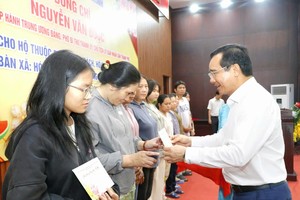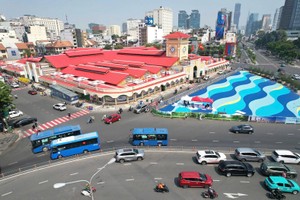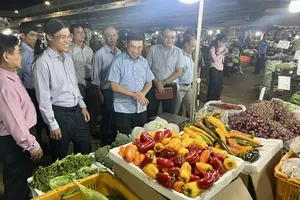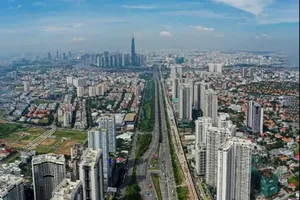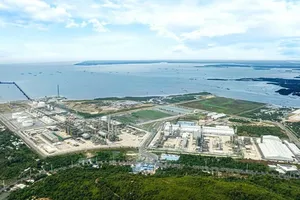According to Decision No. 67/2025/QD-UBND which will be effective from June 1, Ho Chi Minh City will begin implementing fees for waste collection, transportation, and treatment services.
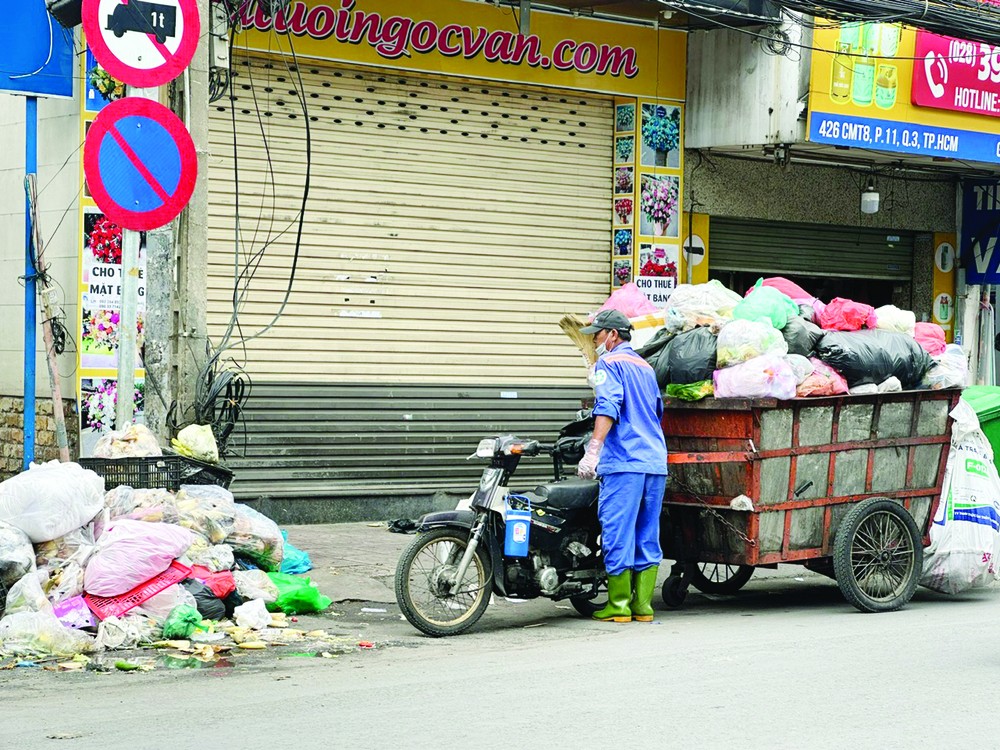
The pricing will vary by area, with the goal of ensuring fairness, transparency, and encouraging waste separation at the source as well as overall waste reduction. However, concerns remain regarding the method used to calculate and apply these service fees.
Under the new pricing framework established for districts, towns, and Thu Duc City, waste collection and transportation fees will be calculated based on the mass or volume of waste generated. The pricing is categorized into two groups. Group 1 includes individuals, households, and small-scale waste generators who are eligible for partial subsidies from the local budget. Within this group, if source separation of waste is not carried out in accordance with the 2020 Law on Environmental Protection, service fees will vary depending on the locality.
In Thu Duc City and other districts, households generating 126kg or less of waste monthly will incur a collection fee of VND61,000 and a transportation fee of VND23,000. For waste volumes exceeding 126kg but not surpassing 250kg, the collection fee rises to VND91,000 with transportation costing VND34,000. For waste amounts between 250kg and 420kg per month, the fees increase to VND163,000 for collection and VND60,000 for transportation. If the monthly waste exceeds 420kg, charges will be applied on a per-kilogram basis, approximately VND486 a kg for collection and VND180 a kg for transportation.
If the Ho Chi Minh City People's Committee implement source waste sorting, service pricing will be determined based on the volume across three designated areas.
The price of household waste collection and transportation service is determined by multiplying the amount of waste generated in the month (kg/month) by the price (VND/kg). For instance, the price for collection at the source is about VND486 a kg plus the transportation fee of about VND180 a kg in Thu Duc City and districts.
Meanwhile, the price for collection at the source is about VND453 a kg plus the transportation fee of about VND180 a kg in Hoc Mon, Nha Be, and Can Gio outlying districts. The price for collection at the source is about VND453 a kg plus the transportation fee of about VND147 a kg in Cu Chi and Binh Chanh suburban districts.
Regarding the payment method, people's committees in dsitricts will be responsible for compiling data on the volume of waste generated by households and individuals after source separation, within a timeframe mutually agreed upon by relevant parties. This data will serve as the basis for calculating service fees.
The volume of classified waste can be determined using one of three methods including direct measurement by weighing the waste; estimation based on the number and type of waste containers used, applying a standard conversion rate (e.g., 1m³ = 420kg) and alternative method determined by local people's committee, tailored to local conditions.
For Group 2—entities classified as large waste generators—service fees will be assessed based on a full and accurate accounting of the costs associated with collection, transportation, and treatment of household waste. According to current reports, local authorities in Ho Chi Minh City are preparing to implement these measures.
Chairman Vuong Hoai Nam of the Ward 5 People's Committee in Go Vap District announced that the ward is currently awaiting guidance from the district to implement the new waste pricing framework.
Meanwhile, Lai Phu Cuong, an official from Binh Tan District, explained that under the new regulations, waste volumes below 126 kilograms per month are classified under the household threshold and do not require weighing. Only households generating more than 126 kilograms of waste per month will be charged based on actual weight, he said.
For households with a large number of residents or businesses producing significant amounts of waste, the regulations stipulate that fees will be calculated according to the measured weight, he added.
Currently, Ho Chi Minh City generates 9,800-10,500 tons of household waste every day. According to the report of the municipal People's Committee, the rate of solid waste treated by non-energy incineration, composting, and recycling in the city is 33 percent while the remaining 67 percent of household waste is still treated by landfill technology.
Resident Thanh Hung in Go Vap District have raised concerns regarding the new waste fee regulations. The resident questioned, “If fees are based on the amount of garbage generated, how can households that share common trash bins determine individual waste volumes? For instance, in apartment buildings where bins are shared, how will the waste be weighed and fees calculated?”
An employee at a private waste collection facility in Tan Phu District said that the company currently collects VND70,000 per household each month. If the city implements source-based waste classification, it will be challenging to measure each household's waste volume accurately. Most residents place their garbage in front of their homes or in communal bins, and often, waste is added by passersby, making it difficult to assign responsibility for the amount generated.
In response to this issue, a representative from the Ho Chi Minh City Department of Agriculture and Environment informed a reporter from SGGP Newspaper that the implementation of the new service fee for the collection and transportation of household waste should be understood as not solely relying on weight for billing purposes. Instead, local authorities may utilize various methods to determine the fee structure. In the near future, the department will issue guidance documents for implementation.
Additionally, Ho Chi Minh City has not yet initiated source separation of waste, which means that pricing based on weight or volume is not currently in effect. The pricing model based on weight or volume will be adopted once source separation is implemented. The Department of Agriculture and Environment representative also mentioned that the agency has submitted a proposal for source separation of waste to the municipal People's Committee.




